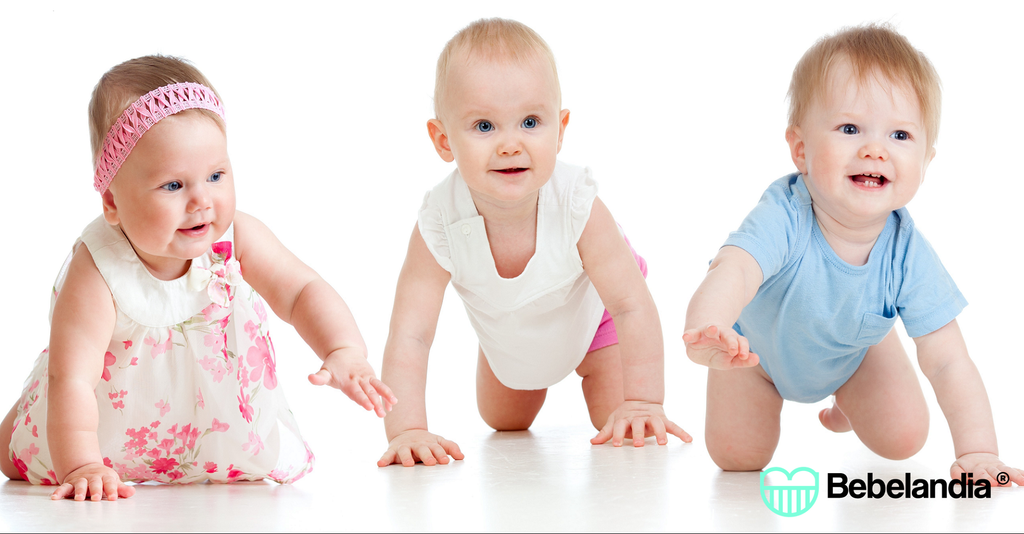A baby doesn't run without first walking, and ideally they should have walked until after crawling. Crawling is an essential phase in their development, so you have to pay attention from the first few months, keeping your baby face down for a few moments during the day in their crib . This will help make this activity easier for them later on.
Crawling is a step in neuromotor development. It prepares children for later learning, such as reading and writing, as it develops eye-hand coordination. It also strengthens arm and leg muscles, which will later allow them to maintain a perfectly straight spine when they are mature enough to stand. It also aids intellectual development and balance, allows them to assess the space around them, focuses their vision, and fosters independence.
This is a transition period that occurs between 8 or 9 months, as your baby begins to sit up properly. However, some do so around one year, others at six months, while some children learn to walk without ever having crawled. All children have their own unique process; you shouldn't force it and don't despair; not all babies are the same. Ideally, they should be able to do it sooner or later.
You play an important role in motivating your baby to venture into this activity. Don't be afraid of dirtying their clothes or hurting their knees, or for safety reasons, think it's better to keep them in the playpen, limiting their space for exploration and allowing them to move around, strengthening their autonomy and safety.
It's important to prepare a free space for your baby—a clean, smooth, safe, cozy, and warm floor. At first, your baby may not want to crawl, as it's a gradual exercise. Therefore, parental support and encouragement are important.
Allowing the baby to lie on his stomach encourages crawling. Toys with sounds and colors that attract his attention can become distractions for the baby to push and chase. Clothing should be as comfortable as possible, and shoes should be avoided.
Place yourself at the end of all the stimuli, most likely he will also try to come towards you, although you can also position yourself at his side and crawl with him, since your baby also learns by imitation, but never force him, although it is ideal for him to crawl before walking for all that it can represent for his development, if your baby stands up and starts walking before then it should not become a cause for concern either.
All little ones eventually crawl, even if they're older and already walking. You can encourage them to play games that involve crawling. The important thing is that it's not up to you to give them the opportunity to do so.

